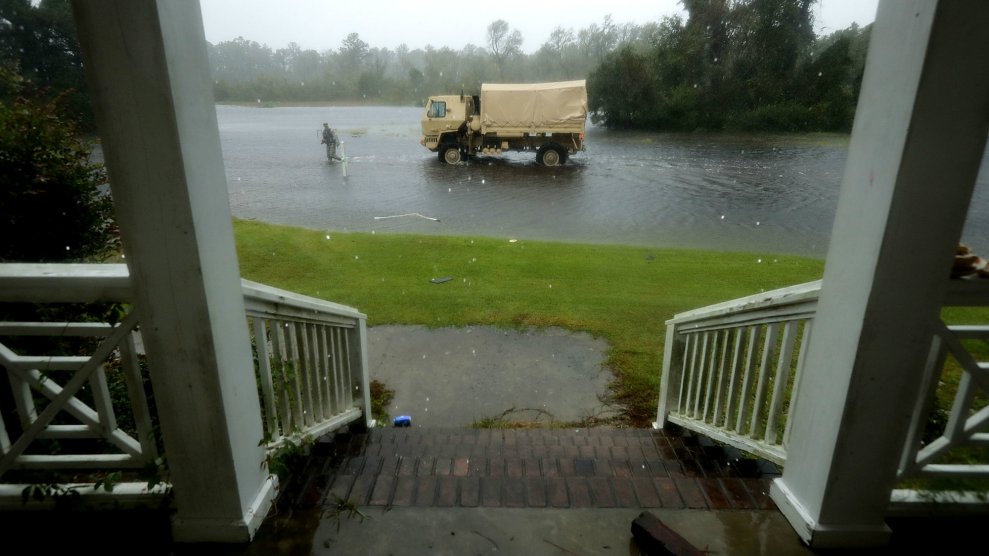
Chip Somodevilla/Getty Images
This story was originally published by HuffPost. It appears here as part of the Climate Desk collaboration.
FAIR BLUFF, N.C.—For nearly two centuries, a historic home sat along a quiet stretch of Main Street here overlooking the Lumber River. Built in 1817, it was the oldest standing house in this old timber town, owner Daryl Pugh said.
But when Hurricane Matthew unleashed a torrent of rain over North Carolina in October 2016, the already-swollen river quickly overflowed its banks. Pugh and his wife had no choice but to flee, taking with them only their dogs and a couple of bags of clothes. A few days later they returned, by boat, to find their home inundated with water—a total loss.
“We had to tear down a 199-year-old house,” said Pugh, a paramedic for nearby Robeson County.
Last month, the Pughs finally moved into a new home they’d built on the same piece of land. They were barely settled in when Hurricane Florence took aim at the North Carolina coast.
“We’re still trying to recover,” Pugh said Thursday as he worked to secure a grill and other loose items in a shed before the storm hit. “Going on two years and here comes another hurricane.”
Dozens of homes in Fair Bluff, which is 70 miles from where the hurricane is expected to make landfall late Thursday or early Friday, flooded during Matthew. Many of them remain abandoned, their water-damaged interiors visible from the street through shattered windows.
Most of the businesses along Main Street are deserted. Roughly a third of the town’s residents left after the storm, according to The Fayetteville Observer. Just last week, as Florence swirled out in the Atlantic, Fair Bluff received state funding to hire three employees to help with the town’s recovery.






